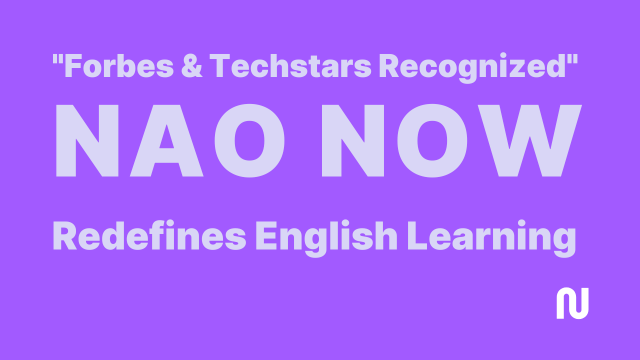The Ultimate Guide to Elementary School Study Abroad: Costs, Preparation, and Strategy






.png)
Hello! If you’re a parent dreaming of a successful elementary school study abroad experience for your child, you’ve come to the right place. This article provides practical insights and real strategies—especially around study abroad costs—to help you prepare with confidence.
Remember: when it comes to young learners, strategic preparation by the parents is everything.
Elementary Study Abroad: The Essential Checklist
To ensure a smooth study abroad journey, you need a well-structured plan. Use this checklist to map out the right path for your child.
- Choose the Right Country
Consider the education system, visa and residency policies, long-term options (like permanent residency), and whether the cultural environment suits your child. - Understand Visa & Guardian Rules
Will your child study alone, or will you accompany them?
Countries like Canada and Australia offer more flexible parent visas. Research visa processing time and required documents in advance. - Build a Budget
Include tuition, living costs, travel, insurance, and extracurriculars in your 1-year simulation. Don't forget to check for scholarships or financial aid options. - Select the Right School & District
Public vs. private? Big city vs. small town? Check for ESL program quality, parental reviews, and academic reputation. - Prepare English Communication Skills
Your child’s success will depend on their speaking ability. Can they ask questions, make friends, and complete tasks in English?
This is where Nao Now can help.
Why Canada Is a Top Destination for Elementary Study Abroad
Canada is one of the most recommended destinations by education experts—and for good reason:
1. High-Quality Education with Better Affordability
- Public school tuition: Approx. $9,200–11,500 USD per year
- Private schools: Still cheaper than U.S. private schools
- Consistently ranked among the top global education systems
2. Student-Friendly System
Canadian provinces offer strong ESL, cultural, and academic support. Libraries, community centers, and youth programs help foreign students feel at home.
3. Easier Parent Visa Options
Parents can often receive guardian or accompanying visas, and in some cases, even work permits. Compared to the U.S. or UK, Canada has more flexible policies.
4. Clearer Path to Permanent Residency
Canada provides a transparent path from graduation → work permit → permanent residency, making it a strategic long-term choice for families.
What Country Is Best for Parent-Accompanied Study Abroad?
Here’s a comparison of popular destinations:
CategoryCanadaUSANew ZealandTuition (Public)$9,200 – $11,500/year$15,000 – $23,000/year$7,700 – $10,800/yearVisa SystemParent visa + possible work permitParent visa very limited (F-2)Student visa + limited parent visaLiving EnvironmentSafe, multicultural, Korean communityCompetitive, occasional discriminationLaid-back, nature-friendly
✅ Canada stands out for its academic strength, immigration opportunities, and supportive expat communities.
How Much Does It Cost to Study Abroad in Elementary School?
Estimated annual costs in Canada:
- Tuition (Public): $9,200–11,500 USD
- Tuition (Private): $20,000–25,000+ USD
- Living Expenses: $23,000–32,000 USD/year (including rent, food, transportation)
- Insurance: $400–600 USD/year
- Flights: $900–1,300 USD round trip
CategoryEstimated Cost (USD/year)Tuition (Public)$9,200 – $11,500Living Expenses$23,000 – $32,000Insurance$400 – $600Flights$900 – $1,300💵 Total (Public school option)~$33,500 – $45,400
Private schools can raise this total by an additional $10,000–15,000 USD depending on the school.
5 Smart Ways to Reduce Study Abroad Costs
- Simulate Your Annual Budget
Account for everything—school, housing, food, activities—and always add a 10–20% buffer. - Search for Scholarships
Some Canadian public and private schools offer ESL-based merit scholarships. Ask the district or school directly. - Check Parent Work Eligibility
In some cases, parents can legally work under specific visa types. Check region-specific rules carefully. - Choose the Right Type of School
Public schools are cheaper, but quality varies. Private schools offer robust support but are more expensive. - Explore Housing Options
Shared rentals, homestays, and guardian programs can reduce housing costs significantly.
3 Critical Questions to Ask Before Studying Abroad
- Can My Child Speak English Confidently?
If they can’t communicate, they’ll struggle to adapt socially and academically. - Can They Adapt to a New Culture?
Western classrooms encourage participation, creativity, and open discussion—very different from rote memorization in Korea. - Are They Independent Enough?
Completing homework, making friends, and managing their day requires verbal self-expression and emotional resilience. Prepare with Nao Now Before You Go Abroad
Nao Now is the perfect pre-study abroad solution to boost English confidence, speaking ability, and cultural understanding.
- ✅ Real conversation-based English – Speak from day one, not just memorize grammar
- ✅ 1:1 lessons with Ivy League mentors – U.S. college role models and future inspiration
- ✅ Fun topics based on American culture – From slime to the White House, Halloween, and more!
- ✅ 3D avatars, AI feedback & video replays – Learning that feels like play, with smart progress tracking
🎯 “Help your child open their mouth in English—before they even board the plane.”



.png)





.png)
.png)
.png)

.png)